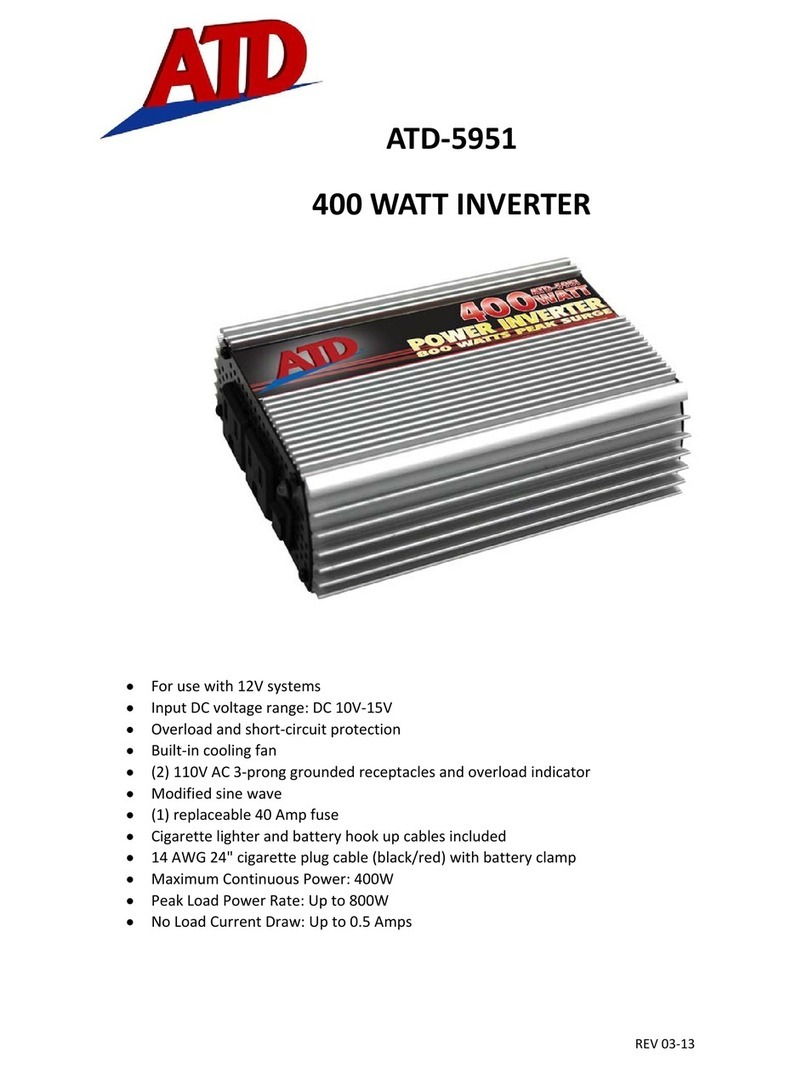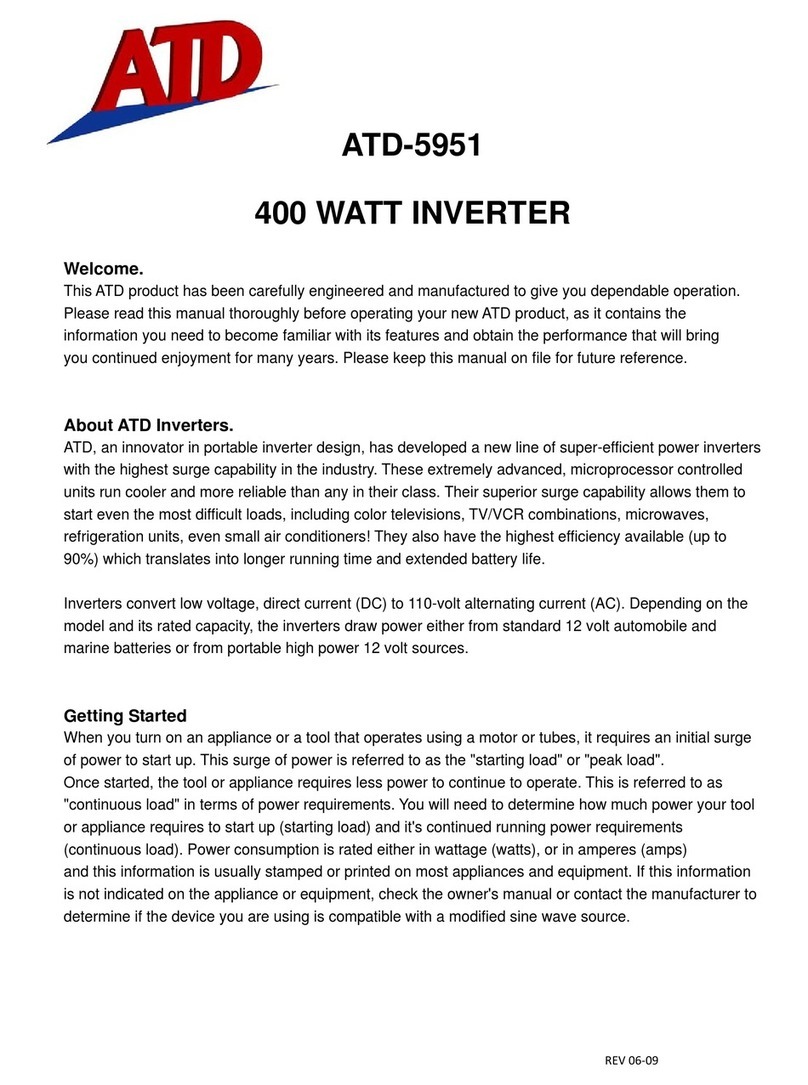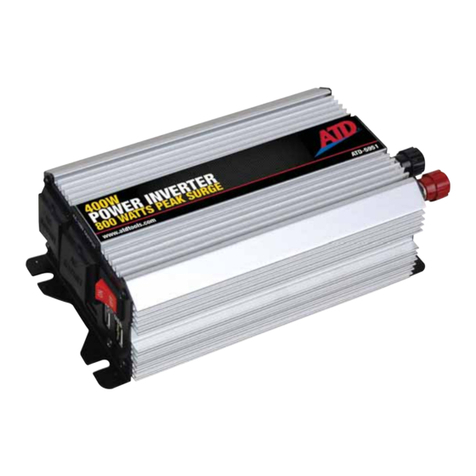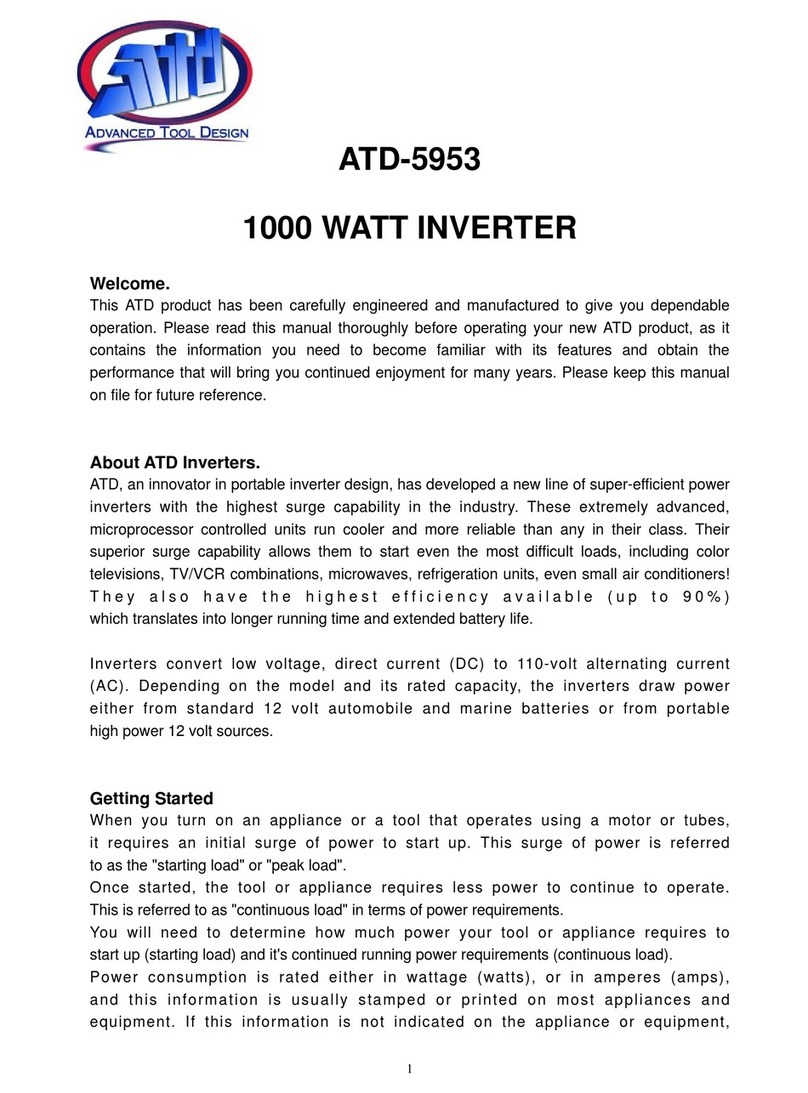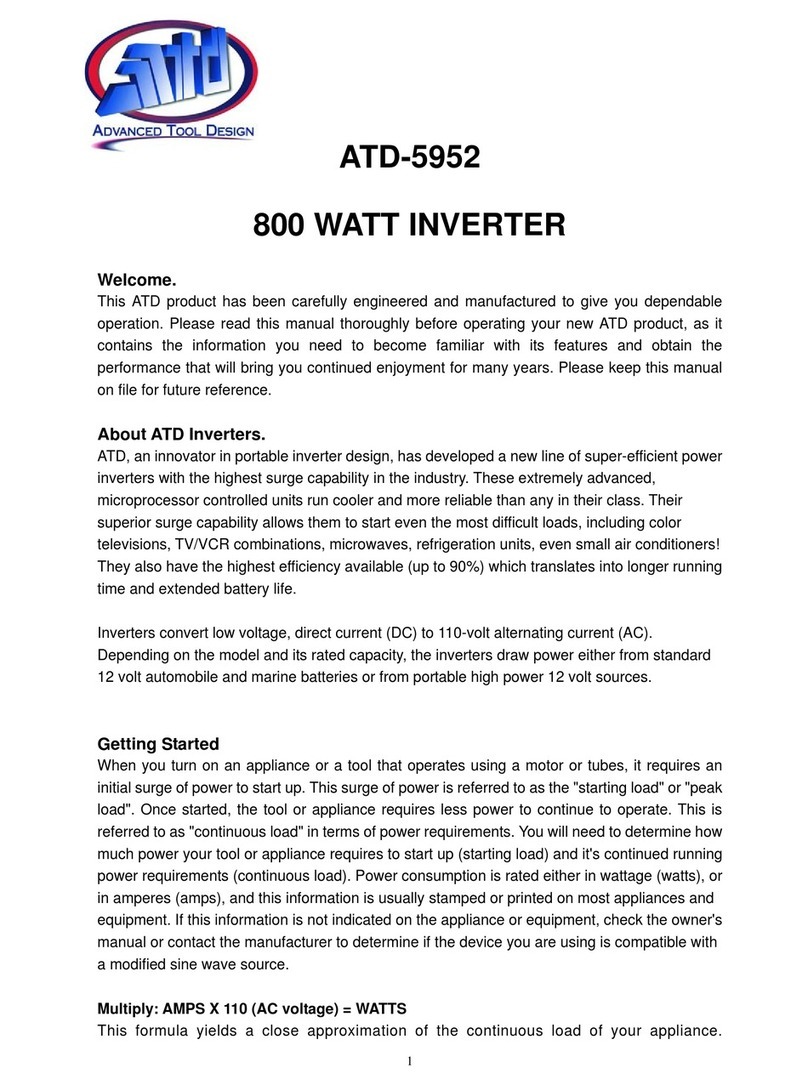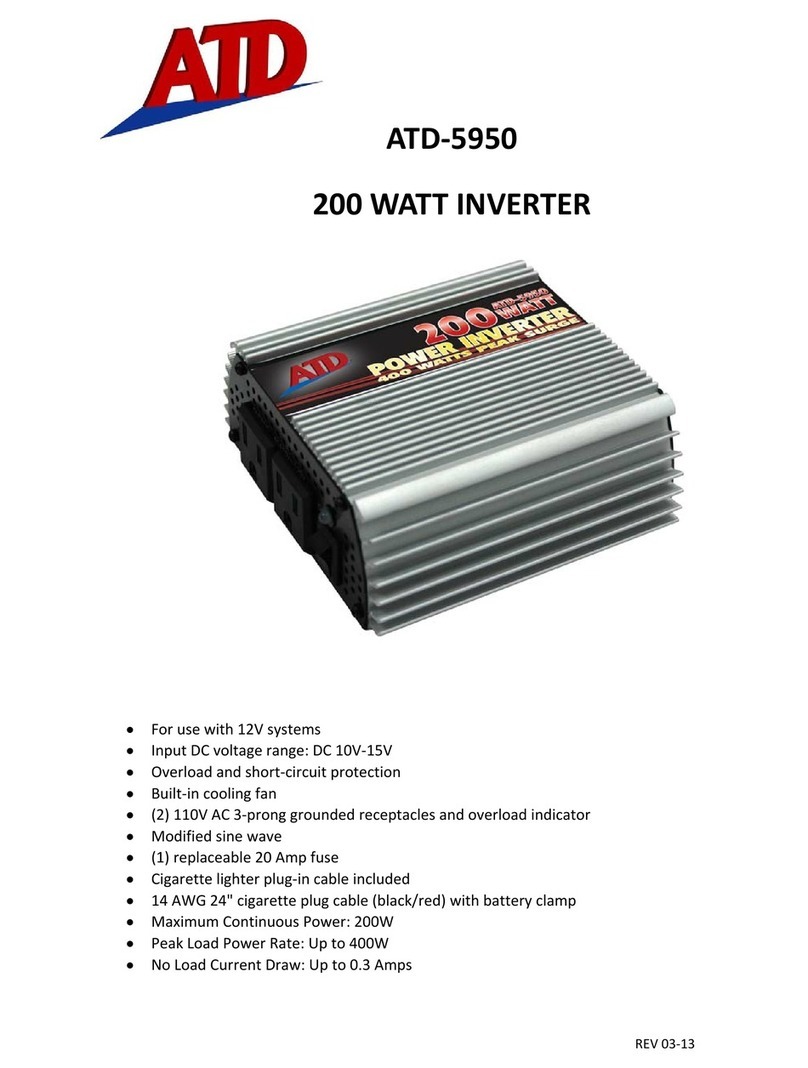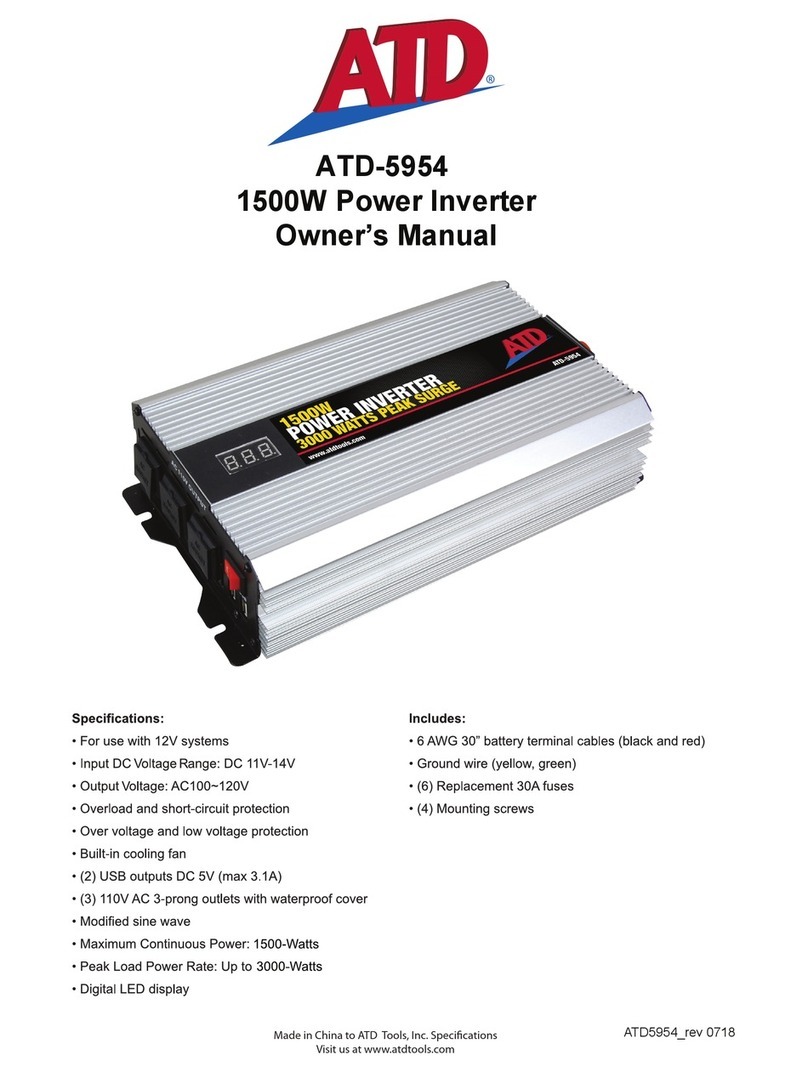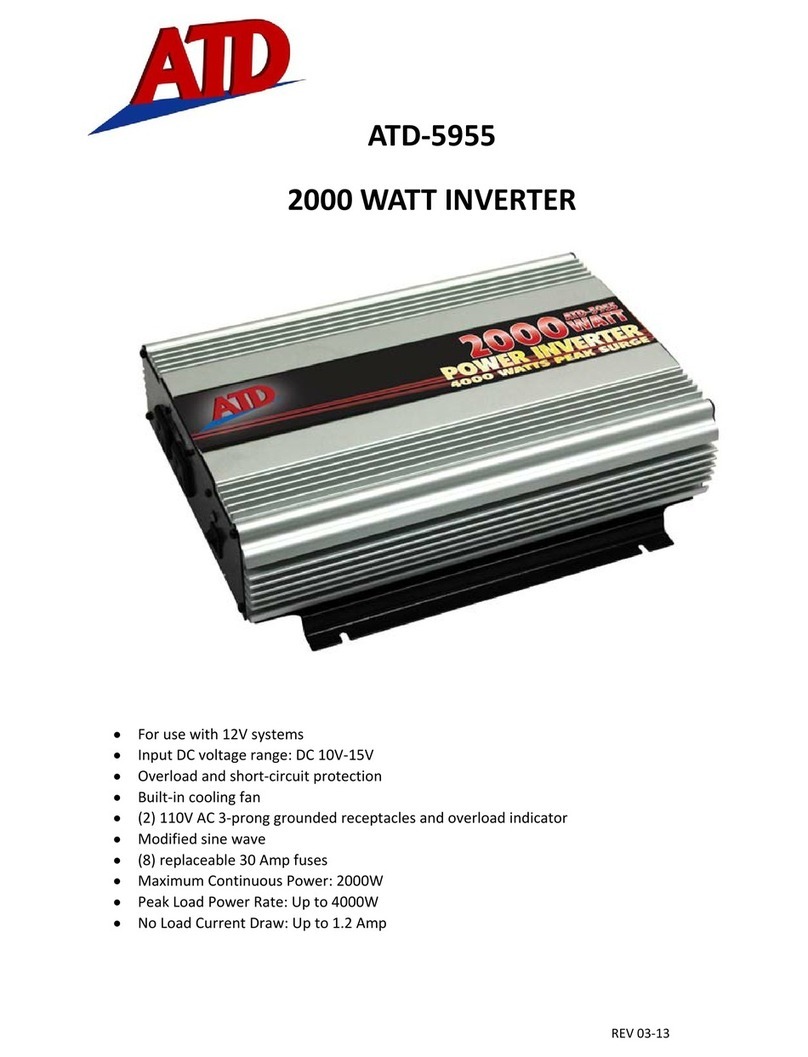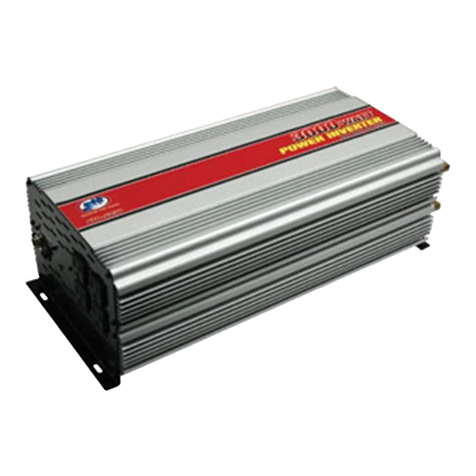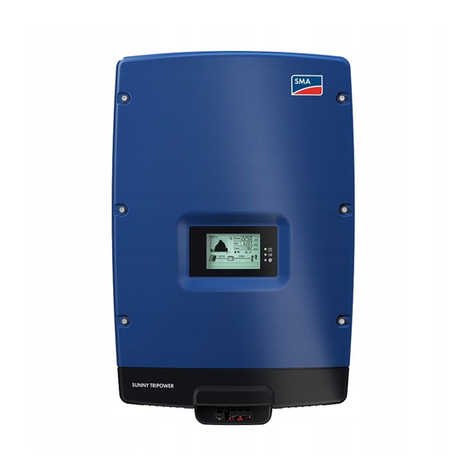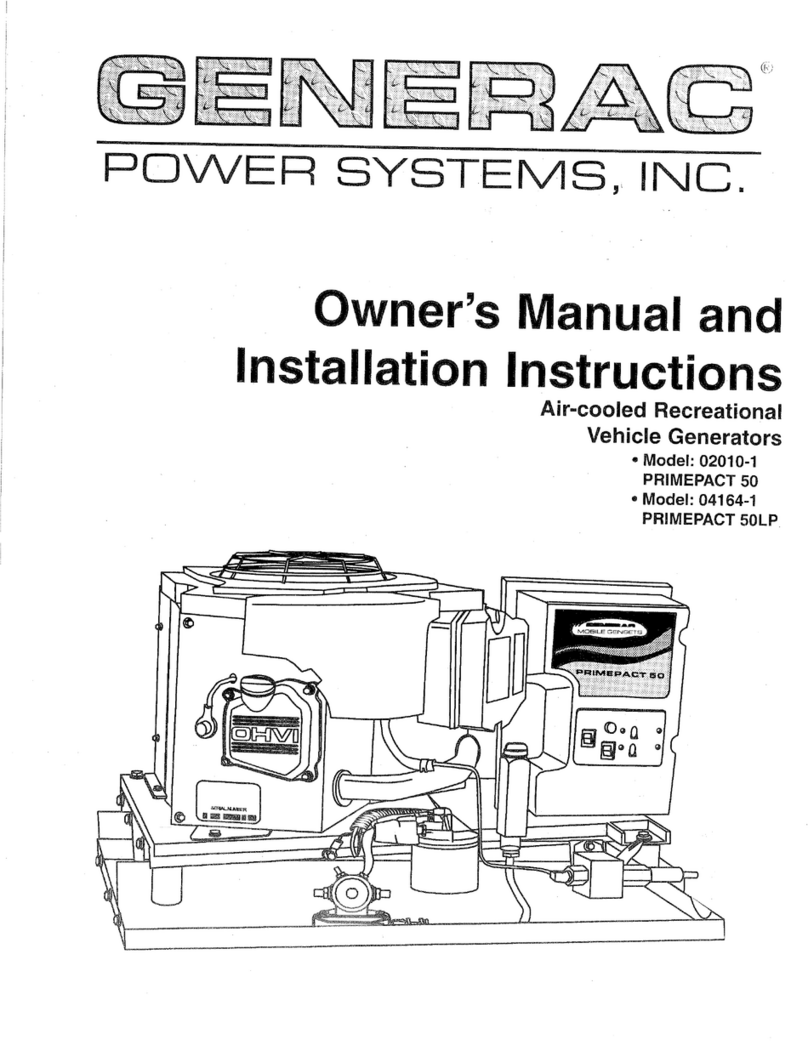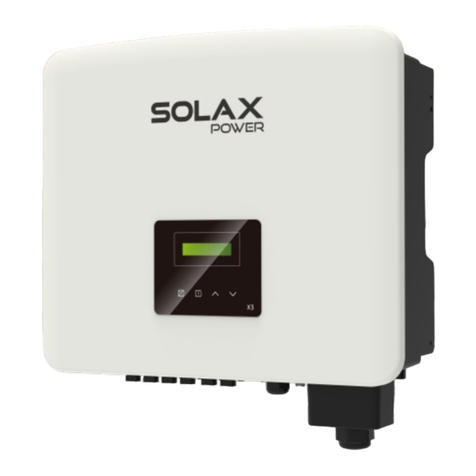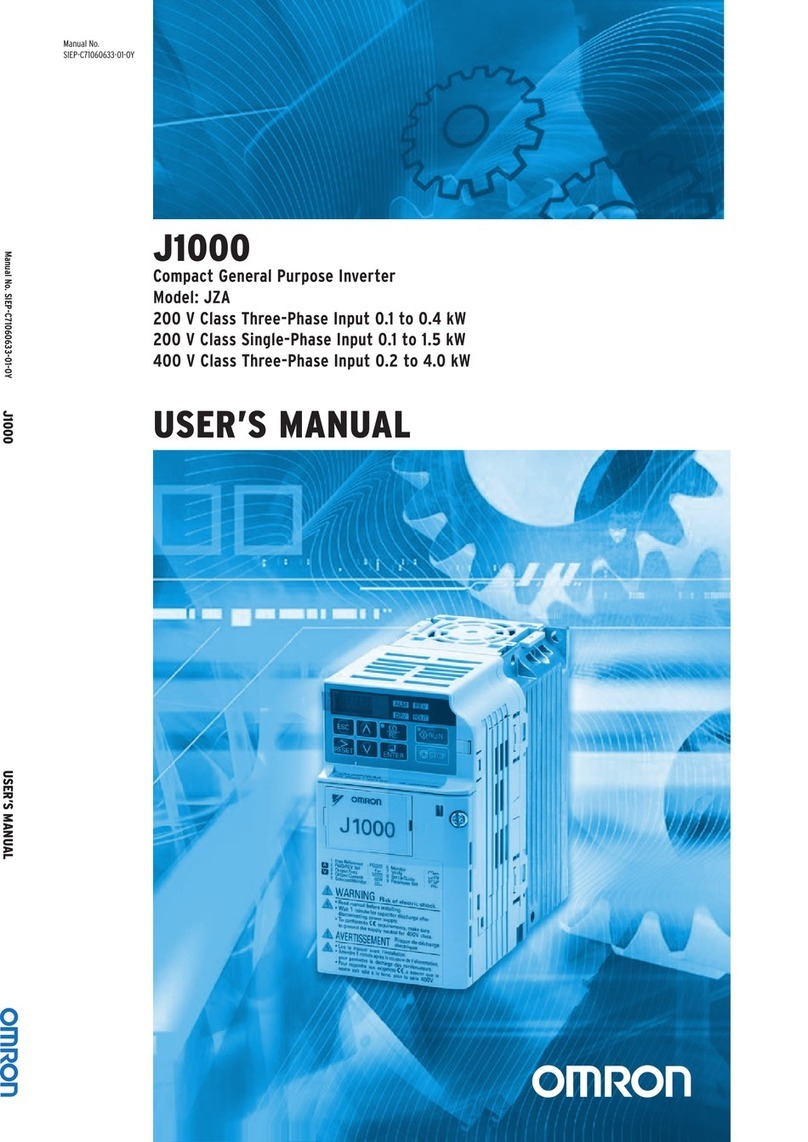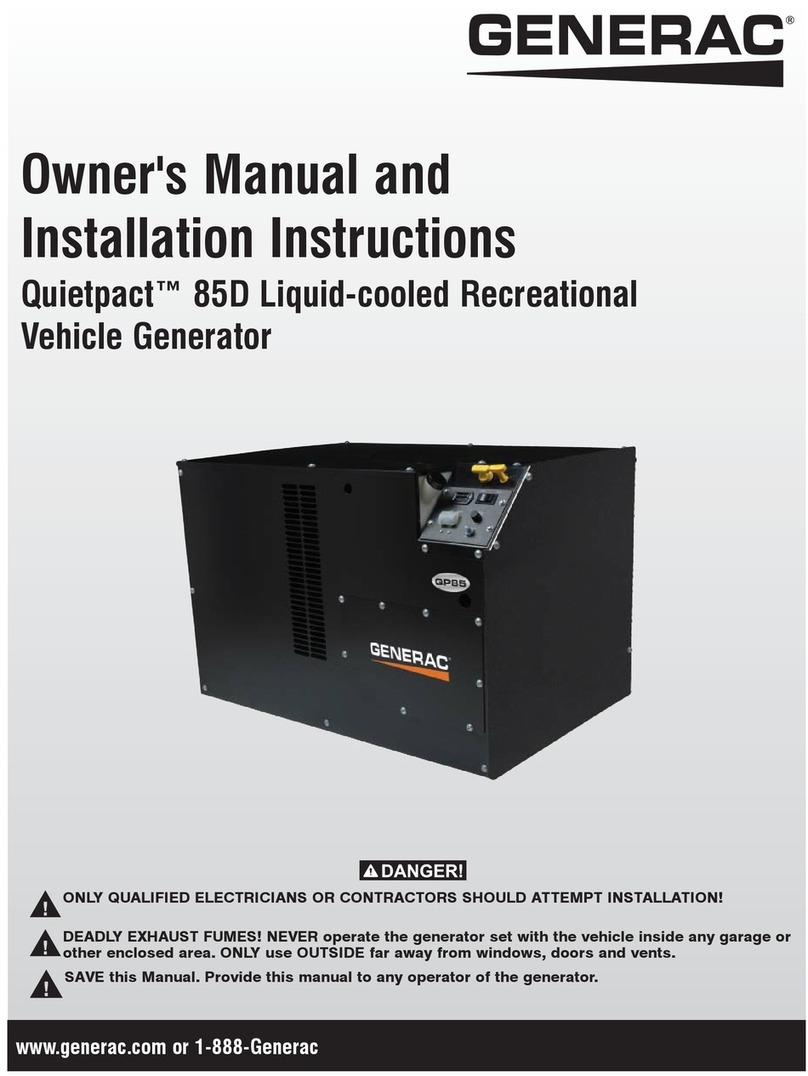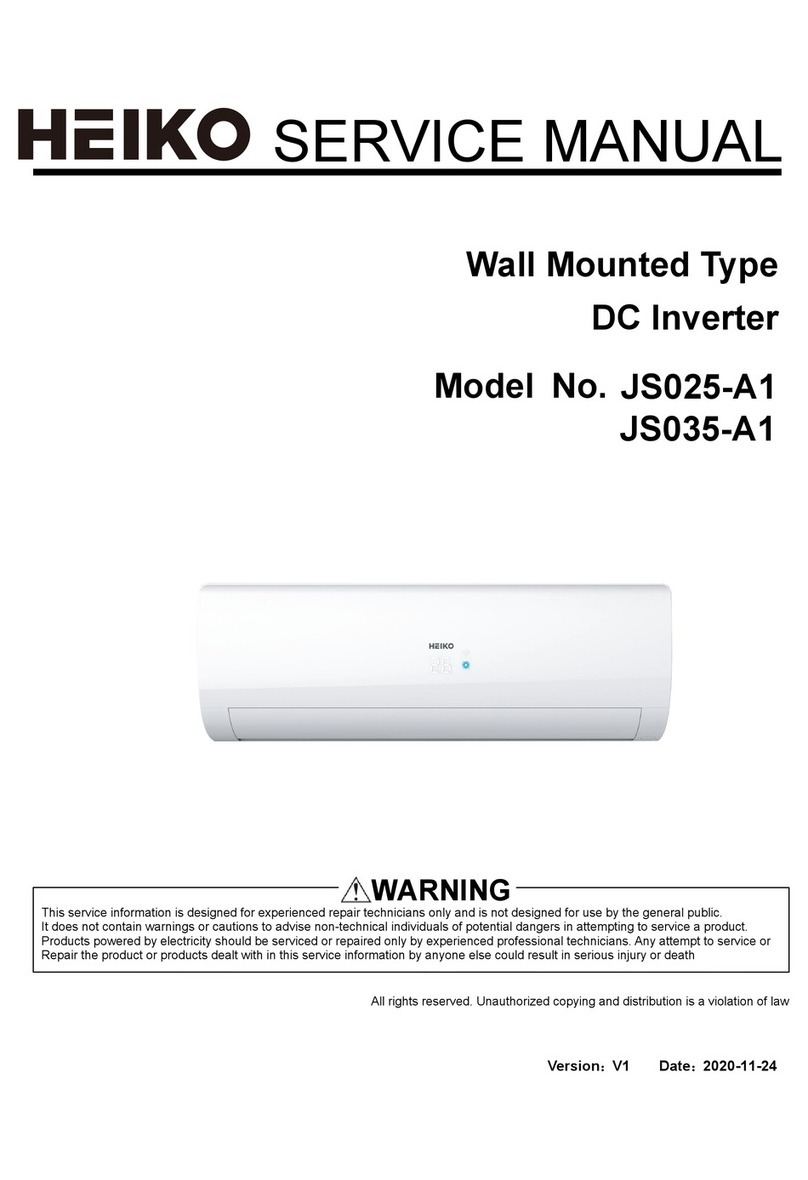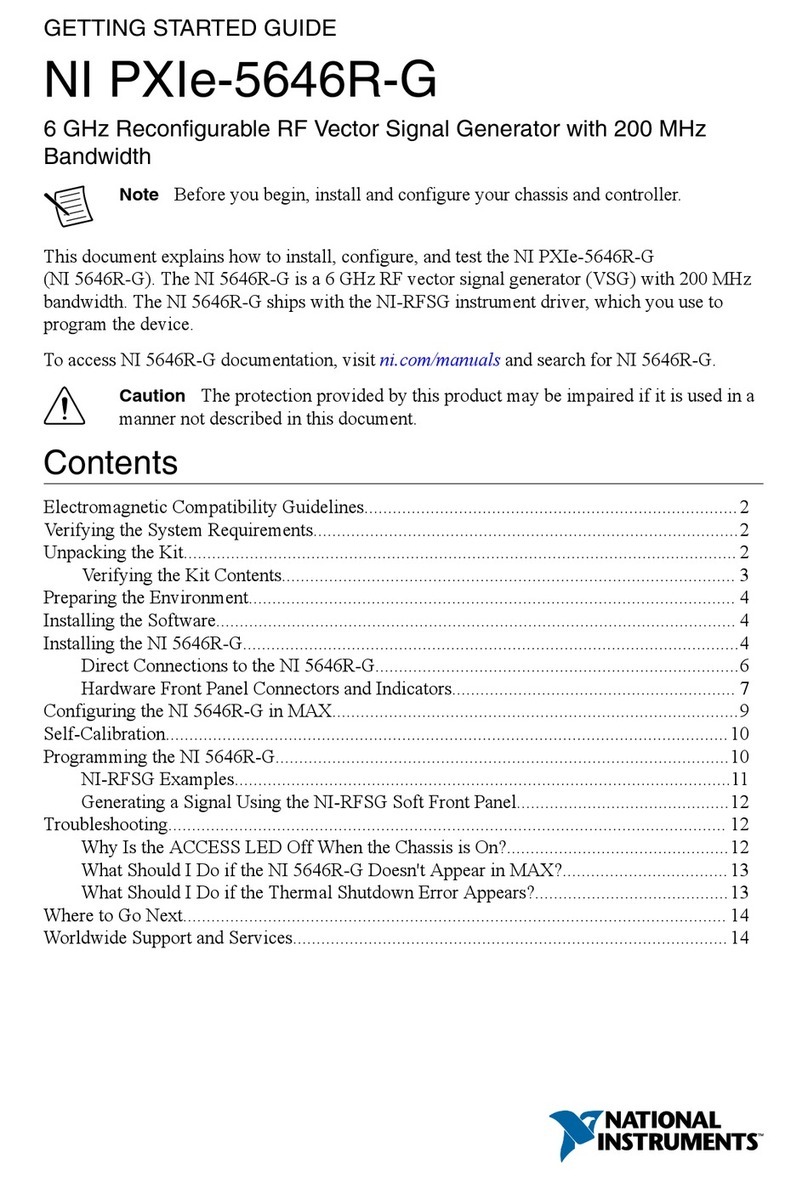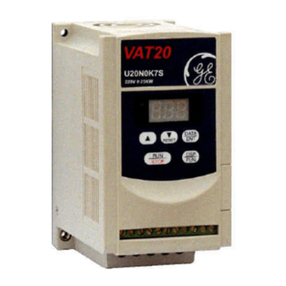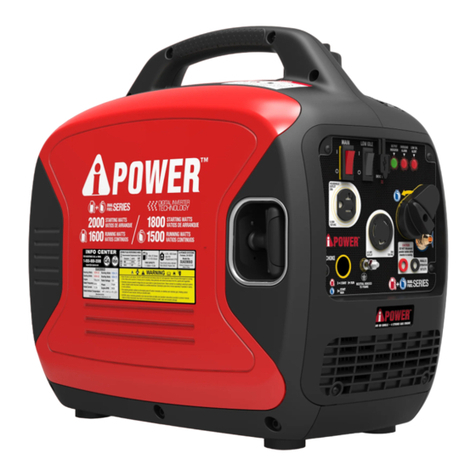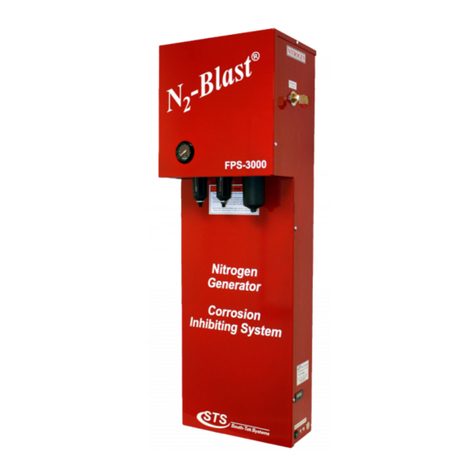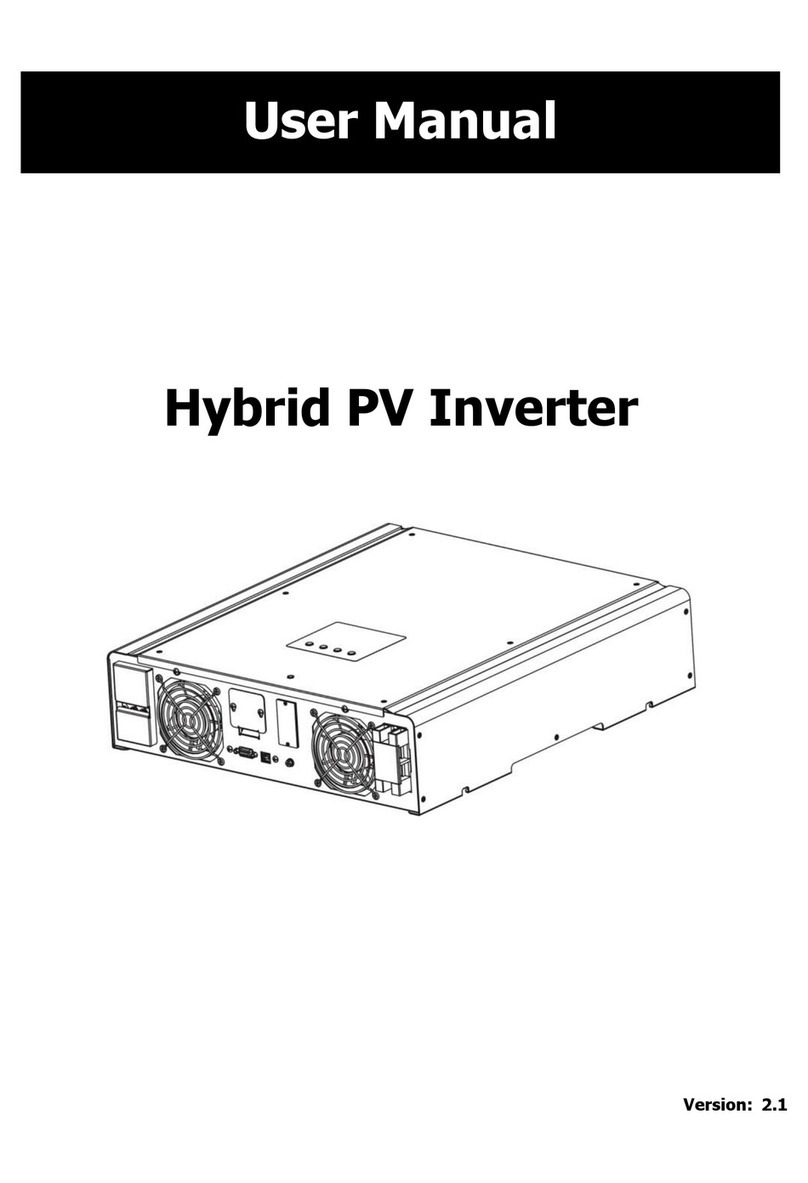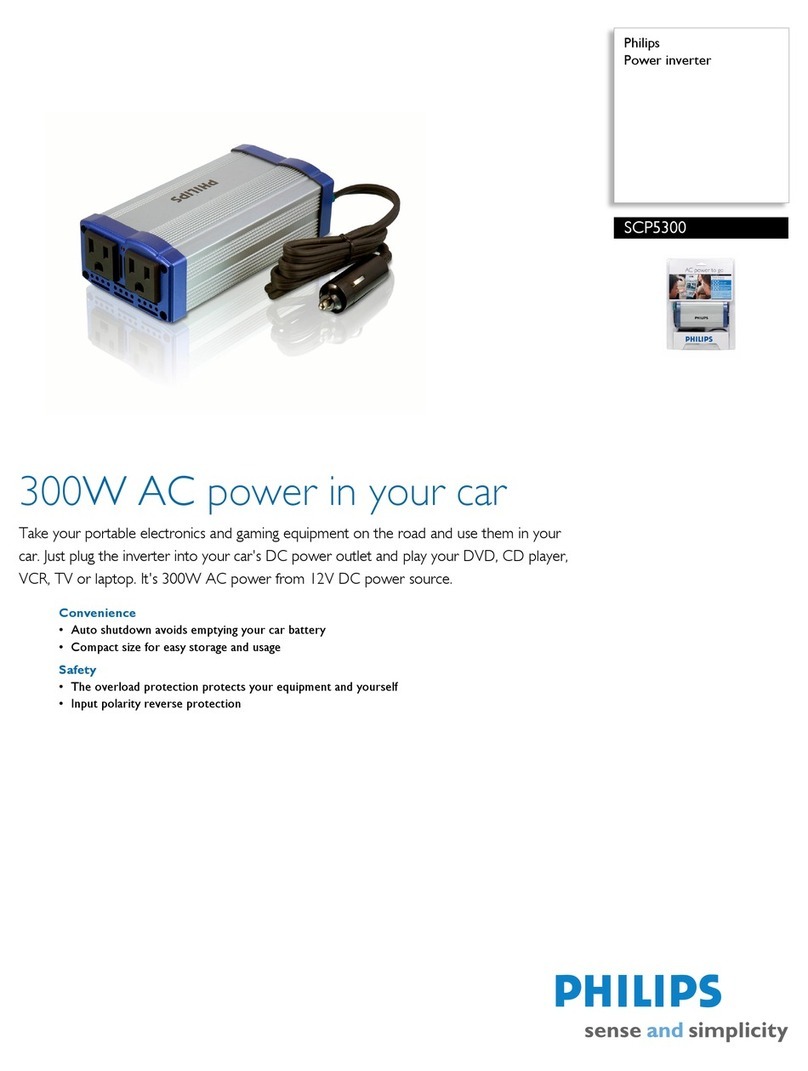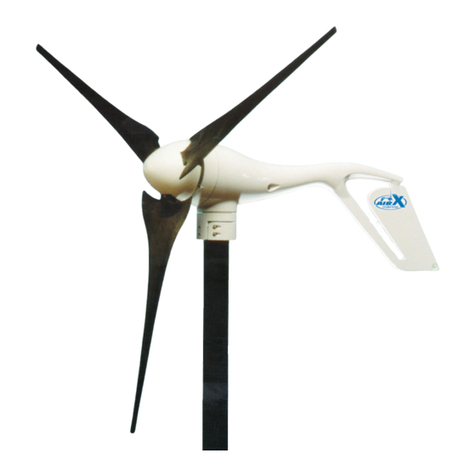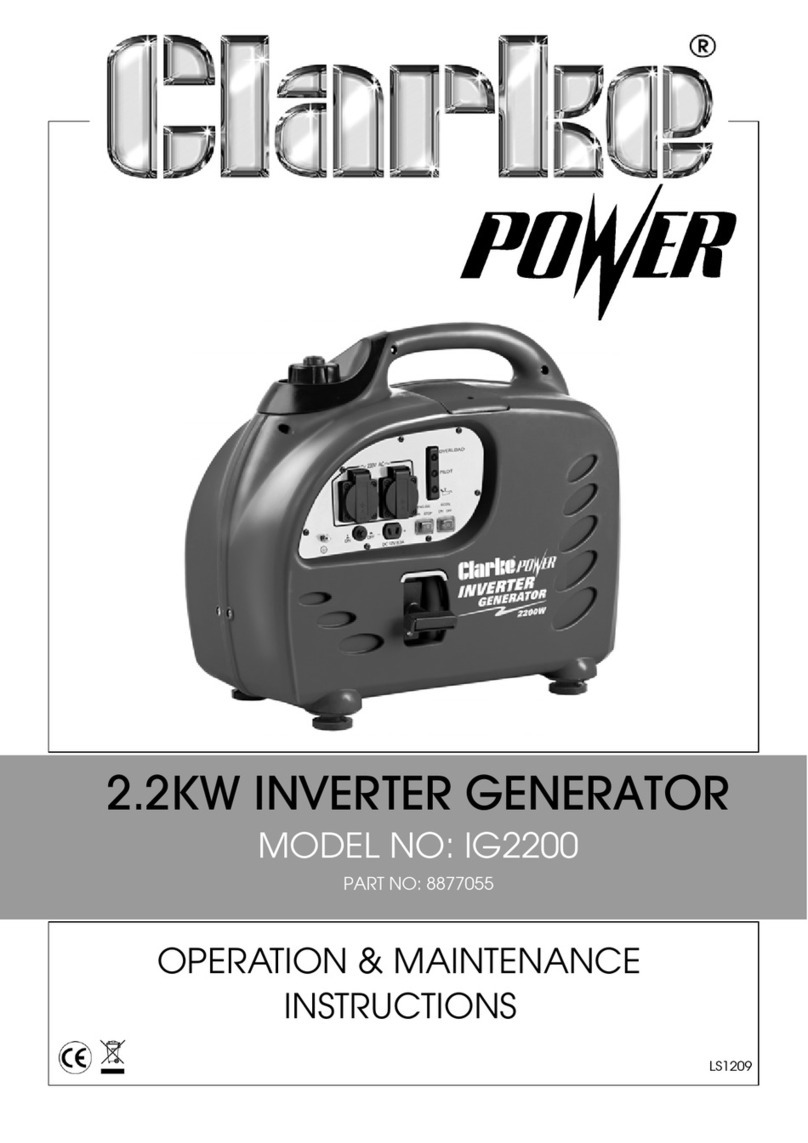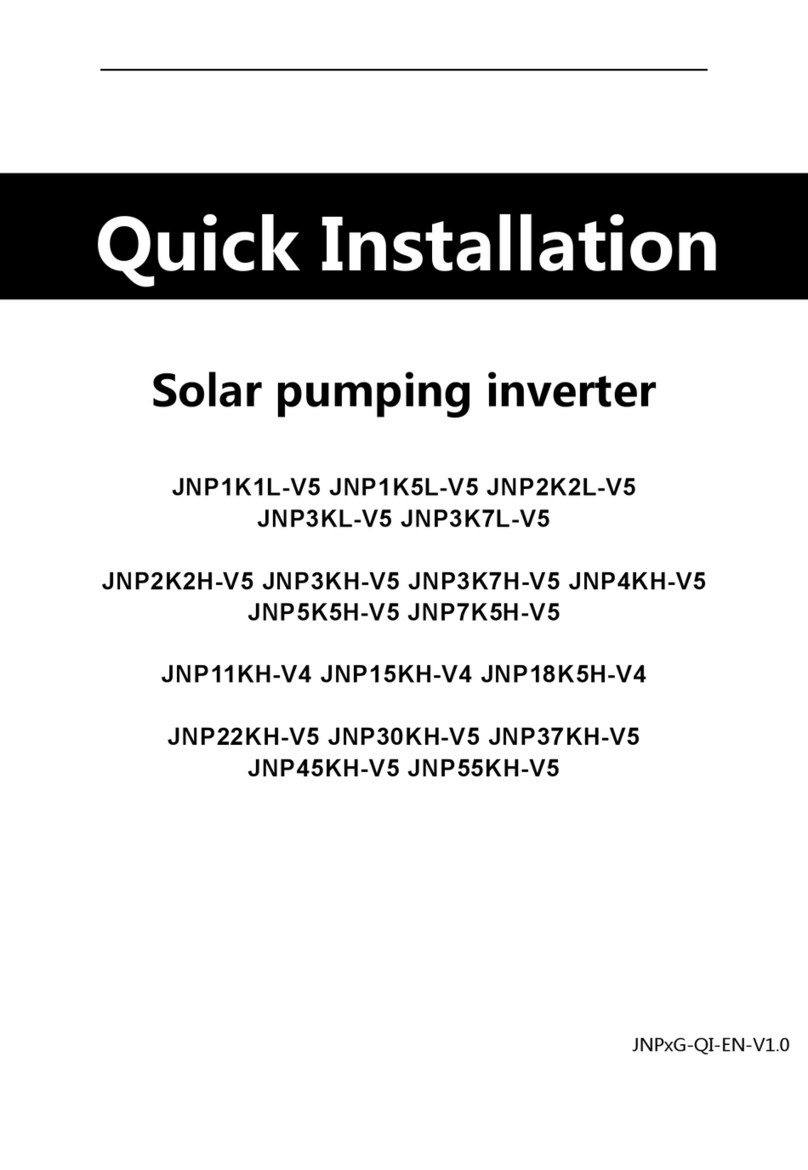
Television and Audio SuggesƟons
Although these inverters are shielded and Įltered to minimize signal interference, some interference with your
televisionpicture may be unavoidable, especially with weaksignals. However, here are some suggesƟons that may
improve receƉƟŽŶ.
1. First, make sure that television antenna producesa clear signal under normal operaƟng condiƟons (i.e., at
home plugged into a standard 110VAC wall outlet). Also, ensure that the antenna cable is properly shielded
and of good quality.
2. Change the posiƟons of the inverter, antenna cables and television power cord.
3. Isolate the television, its power cord and antenna cables from the 12-Voltpower source by running an
extension cord from the inverter to the television set.
4. Coil the television power cord and the input cables running from the 12-Voltpower source to the inverter.
5. AƩach a "Ferrite Data Line Filter" to the television power cord. More than one Įlter may be required. These
Įlters are available at most electronic supply stores.
Note
xInexpensive sound systems may emit a "buzzing" sound when operated with the inverter. This is due to
inadequate Įlters in the sound system. There is no soluƟon to this problem short of purchasing a sound
system with a higher quality power supply.
Blown AutomoƟǀĞ Fuses
Depending on the make and model of your automobile, running the power inverter near full capacity from your
cigareƩe lighter port may result in a blown automoƟve cigaƌĞƩe lighter fuse. This fuse will need to be replaced
with the same size fuse. Please note, a blown automoƟve fuse will not cause damage to yourcar wiring. To avoid
blowing an automoƟve fuse in this situaƟon, do not operate the power inverter over 80ϬͲtĂƩƐ for extended
periods of Ɵme from your cigaƌĞƩe lighter or 12-Volt power port.
Blown Power Inverter Fuses
Source of Power
8
Your power inverter is equipped with (4) internal 25A spade-type fuses. With reasonable care it should not be
necessary to replace these fuses. Most blown fuses are the result of reverse polarity or a short circuit within the
appliance or equipment being operated. If the fuse happens to blow, disconnect the appliance or equipment
ŝŵŵĞĚŝĂƚĞůLJĮŶĚƚŚĞƐŽƵƌĐĞŽĨƚŚĞƉƌŽďůĞŵƌĞƉĂŝƌŝƚĂŶĚƌĞƉůĂĐĞƚŚĞĨƵƐĞŝŶƋƵĞƐƟŽŶdŽƌĞƉůĂĐĞƚŚĞĨƵƐĞ;ƐͿĮƌƐƚ
ƚƵƌŶƚŚĞƵŶŝƚŽīĂŶĚĚŝƐĐŽŶŶĞĐƚƚŚĞŝŶǀĞƌƚĞƌĨƌŽŵLJŽƵƌϭϮsƉŽǁĞƌƐŽƵƌĐĞKŶĐĞƉŽǁĞƌŝƐĚŝƐĐŽŶŶĞĐƚĞĚƚƵƌŶƚŚĞ
ƉŽǁĞƌƐǁŝƚĐŚƚŽƚŚĞŽŶƉŽƐŝƟŽŶĨŽƌŽŶĞŵŝŶƵƚĞƚŽĚŝƐĐŚĂƌŐĞƚŚĞƵŶŝƚƚŚĞŶƚƵƌŶŝƚŽīĂŐĂŝŶZĞŵŽǀĞĨŽƵƌƐĐƌĞǁƐĨƌŽŵ
ƚŚĞĐŽƌŶĞƌƐŽĨƚŚĞďĂĐŬŽĨƚŚĞƵŶŝƚƐůŝĚĞƚŚĞĨĂŶƉĂŶĞůƐůŝŐŚƚůLJŽƵƚŽĨƚŚĞǁĂLJŝŶŽƌĚĞƌƚŽƐůŝĚĞƚŚĞďŽƩŽŵƉĂŶĞůŽƵƚĂŶĚ
reveal the fuses. Using insulated needle nose pliers and being careful not to disturb other components, pull the fuse
ŽƵƚĂŶĚƌĞƉůĂĐĞŝƚǁŝƚŚĂŐŽŽĚĨƵƐĞ^ůŝĚĞďŽƩŽŵƉĂŶĞůďĂĐŬŝŶƚŽƉůĂĐĞĂŶĚƐĞĐƵƌĞƚŚĞĨĂŶƉĂŶĞůǁŝƚŚƚŚĞĨŽƵƌƐĐƌĞǁƐ
Most automobile and marine baƩeries will provide an ample power supply to the inverter for 30 to 60 minutes
even when the engine is oī. Actual ƟŵĞ may vary depending upon the age and condiƟon of the baƩery, and the
power demand being placed on it by the equipment being operated with the inverter. If youdecide to usethe
inverter while the engine is oī,we recommend that you start the engine every hour and let it run for approximately
10 minutes to recharge the baƩery. We also recommend that the device plugged into the inverter be turned OFF
before starƟng the vehicle engine. Although it is not necessary to disconnect the inverter when turning over the
engine, it may momentarily cease to operate as the baƩery voltage decreases. When the inverter is not supplying
power, it draws very low amperage from the baƩery and may be leŌconnected to the baƩery for up to three hours.
However, we recommend the inverter always be disconnected when not in use.













